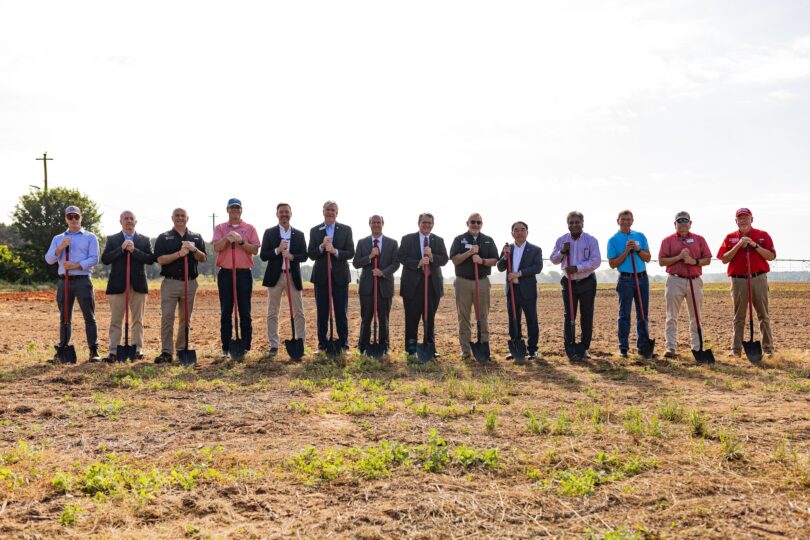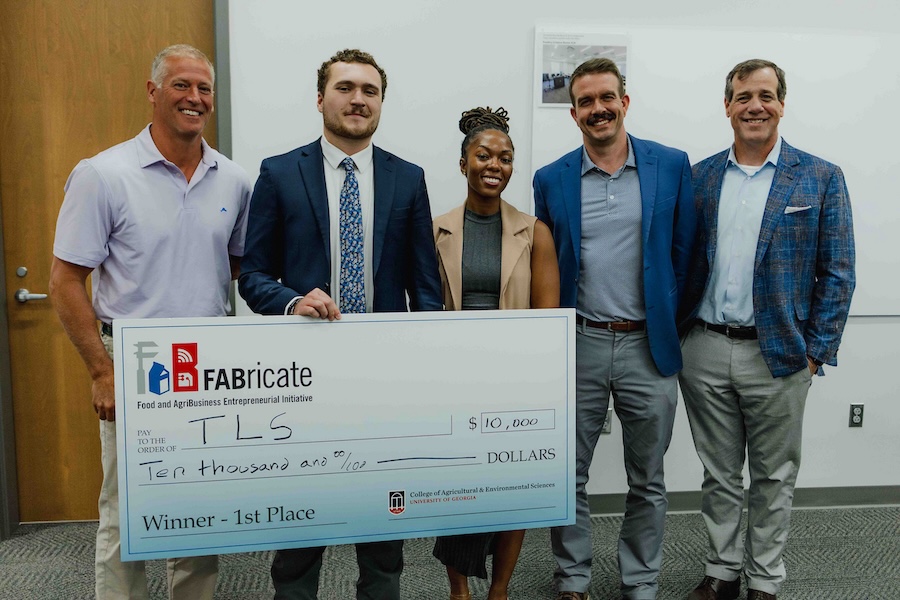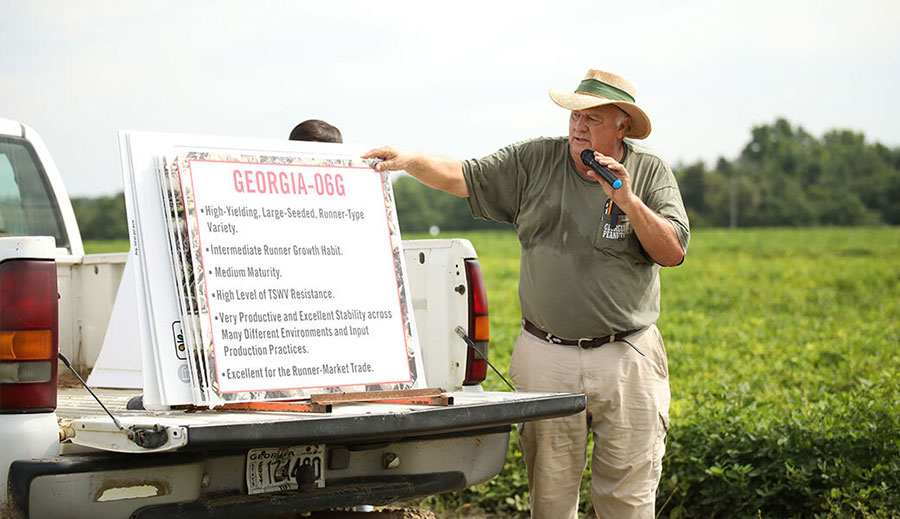.jpg)
The University of Georgia Office of Research recently announced a record-breaking fiscal year 2022 with more than a half billion dollars spent on research and development. The College of Agricultural and Environmental Sciences (CAES) was responsible for $112.8 million of the total, up $13.8 million from fiscal year 2021 in overall money spent on research from all funding sources.
These expenditures contribute to the college's position as a global leader in agricultural and environmental sciences.
“This increase in expenditures demonstrates that our research efforts are stronger, more productive and prepared to continue addressing issues facing agriculture, environment and health as a result,” said Nick T. Place, CAES dean and director. “In CAES, we are committed to research that produces meaningful results for producers, consumers and the industry as a whole — these funds are an indicator that we’re finding success today and setting our research programs up for even greater levels of success in the future.”
But the drive to make advances in urban agriculture, animal science, regenerative bioscience, plant and food sciences, sustainability and conservation and more begins long before the funding is spent.
Innovation serving Georgia’s largest industry
In fiscal years 2020 and 2021, CAES researchers submitted 1,339 sponsored research proposals, more than 30% of the university total during the same timeframe. CAES was awarded $239.5 million in grants and federal funds in fiscal years 2021 and 2022.
“The research taking place in CAES labs, classrooms and fields in agricultural and environmental sciences keeps Georgia at the pinnacle of these industries,” said Harshavardhan Thippareddi, CAES interim associate dean for research and John Bekkers Professor in Poultry Science. “This research is foundational to the land-grant university mission of education for everyone, creation of science-based research and expert Extension outreach to help ensure that we provide solutions to our stakeholders in Georgia and around the globe.”
CAES faculty have generated 921 published journal articles from research conducted in laboratories and at eight Research and Education Centers (RECs) across the state, expanding the reach of faculty expertise well beyond the classroom.
“Research conducted by our faculty in their laboratories, fields and at RECs across Georgia is the engine that drives the No. 1 industry in the state — agriculture,” Thippareddi said.
CAES faculty are world leaders in research on turfgrass, cotton, peanuts, animal science and poultry science. Renowned UGA turfgrass breeders have developed varieties used in world-class sporting facilities, including Olympic stadiums. CAES is the home of the Feed the Future Innovation Lab for Peanut, one of 14 universities in the U.S. to host a Feed the Future Innovation Lab, the U.S. government’s global hunger and food security initiative.
Through partnerships with the UGA College of Engineering, CAES researchers are developing robots that will help cotton farmers improve management practices to produce better crops with less impact on the environment. Researchers at the UGA Regenerative Bioscience Center are developing new methods to treat stroke, heart disease, Parkinson’s and Alzheimer’s — devastating diseases that do not yet have a cure.
Investments in physical research spaces, both on campus and across the state, including the nearly complete Poultry Science Building, enable researchers to expand the drive for innovation.
Growing business and industry partnerships
While the college maintains well-proven efforts in securing grants and federal funding, CAES leadership recognized the need to invest in business and industry partnerships.
In July 2020, Chris Rhodes joined CAES as director of industry partnerships and project-based learning. In this role, Rhodes acts as a liaison with the agriculture industry, facilitating interactions between industry partners, students and faculty.
These partnerships span all areas of expertise within CAES, from partnering with an international company on the world’s first honey bee vaccine to expanding vertical farming efforts to stay on the cutting edge of controlled environment agriculture research.
Rhodes also facilitates CAES participation in the UGA Innovation District.
“CAES is one of the top programs of its kind in the world, and the breadth of agricultural activities in Georgia provides UGA a unique opportunity to build a leading environment of entrepreneurship and public-private partnership,” Rhodes said.
To learn more about research and innovation at CAES, visit leadinginnovation.caes.uga.edu.






